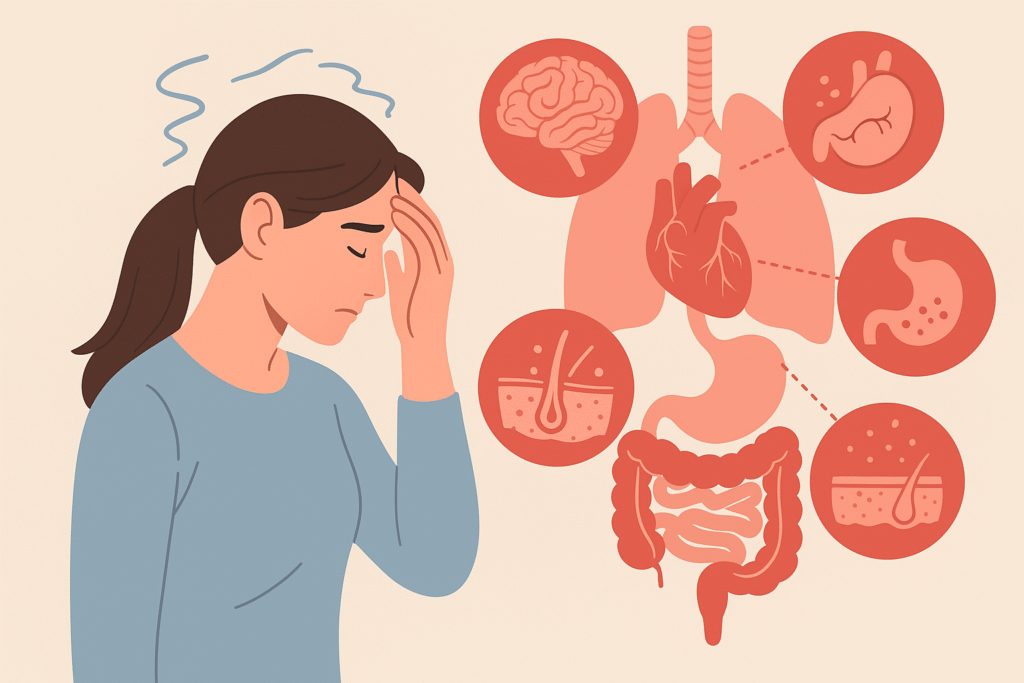Daily pressure, constant availability - a dangerous cocktail?
Almost everyone knows it, but only a few people are aware of it, What stress really does to the body. Whether chronic tension at work, family conflicts or too little sleep: our body reacts to stress not only mentally, but also physically. And with far-reaching consequences.
What is stress anyway?
Stress is a biological survival reactionwhich is designed to protect us from danger. In a fraction of a second, the body is put on alert - the heart beats faster, breathing becomes shallower and the muscles tense up.
Responsible for this: the Cortisol hormonetogether with adrenaline and noradrenaline. This is useful in the short term - but dangerous in the long term.
Stress effects in the body - what exactly happens?
1. Brain: overstimulation & lack of concentration
Chronic stress leads to altered brain chemistry. The result:
- Concentration problems
- Mood swings
- Sleep disorders
- Risk of anxiety disorders & depression increases
2. Cardiovascular system: constant stress with consequences
Stress increases blood pressure and speeds up the heartbeat.
In the long term, this can lead to:
- High blood pressure
- Cardiac arrhythmia
- Increased risk of heart attack
3. Digestive tract: Irritable bowel syndrome & co.
Digestion is shut down during periods of stress - the body prioritises survival, not digestion. This can lead to:
- Heartburn
- Irritable bowel syndrome
- Nausea
- cause flatulence or diarrhoea
4. Immune system: weakening & silent inflammation
Cortisol suppresses immune reactions. The result:
- Greater susceptibility to infection
- Delayed wound healing
- Increased risk of autoimmune diseases
- Chronic silent inflammation
5. Skin: Stress is also written on the face
Stress can cause skin problems such as:
- Acne
- Neurodermatitis
- Rosacea
- Psoriasis worsening
Oxidative stress also promotes the Skin ageing.
6. Endocrine system & cycle
Women are particularly sensitive to stress:
- Cycle disorders
- PMS
- Hair loss
- Loss of libido
How to counteract stress in the body
- Breathing techniques & meditation
- Regular exercise (especially endurance)
- Sufficient sleep
- Plant adaptogens such as ashwagandha, rhodiola
- Nutrition with omega-3, magnesium, antioxidants
Conclusion: stress is (also) physical - but you can counteract it
Stress is more than just a feeling - it changes your body on a cellular level. If you learn to take countermeasures at an early stage, you not only protect your nerves, but your entire system.
